visual arts. The new faculty members bring with them a depth and breadth of expertise in a variety of topics, from theoretical particle physics to mid-century architecture.
We asked these new faculty members to share what engages them both intellectually and personally.
Nina Barzachka, political science
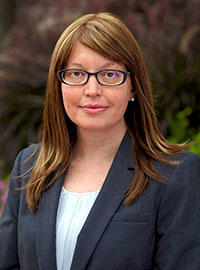
Nina Barzachka earned a dual B.A. in international relations and French from Roanoke College and an M.A. and Ph.D. in foreign affairs from the University of Virginia. Prior to Holy Cross, she taught at Dickinson College, Transylvania University, Gettysburg College and Mary Baldwin College.
What excites you most about joining the faculty at Holy Cross?
What I look forward to the most at Holy Cross is teaching and mentoring undergraduate students in a liberal arts environment that encourages reflection, dialogue, civic engagement, commitment to social justice and care for the whole individual. I am also thrilled to join a dynamic and supportive community of faculty and administrators who view scholarship and teaching as mutually enriching endeavors.
How do your research interests influence the courses you teach?
I study electoral system reform, political parties and protest movements. Broadly speaking, I explore institutional change in various political contexts. I am especially interested in cases when powerful actors, those who benefit the most from the institutional status quo, agree to give up some of their power. At Holy Cross, I teach Introduction to International Relations, and courses directly related to my research, including European Politics, and European Political Parties. One of my favorite class exercises is a simulation that I have developed to demonstrate the effects of electoral systems on party systems and government formation.
Conor Carney, economics
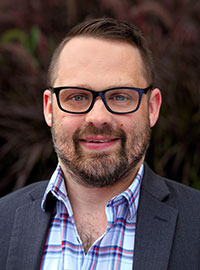
Conor Carney earned an A.B. in economics from the College of the Holy Cross, an M.S. in economics from Tufts University and an M.A. and Ph.D. in economics from the University of California, Santa Barbara. Prior to Holy Cross, he was a teaching assistant at Tufts University and the University of California, Santa Barbara and worked as a consultant on litigation matters related to environmental damages.
What excites you most about joining the faculty at Holy Cross?
As a graduate of the College, I am most excited about the opportunity to work with the faculty that inspired me to pursue a Ph.D.
How do your research interests influence the courses you teach?
My work falls into the intersection of development and environmental economics where I use big data and creative empirical techniques to answer policy-relevant questions in a developing world context. In the classroom, I try to incorporate my research into lectures and discussion so that the students get a better understanding of the breadth of questions that economic theory and analysis can help us answer.
Shreyashi Chakdar, physics
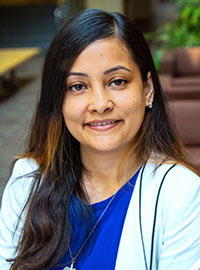
Shreyashi Chakdar earned a B.S in physics from Lady Brabourne College, University of Calcutta, an M.S. in physics from the Indian Institute of Technology, Roorkee and a Ph.D. in theoretical particle physics from Oklahoma State University. Prior to Holy Cross, she was a graduate fellow at the University of California, Santa Barbara, a postdoctoral fellow at the University of Virginia and a visiting assistant professor at Colby College. She was chosen as a Kavli Institute for Theoretical Physics Scholar for 2019-2021.
What excites you most about joining the faculty at Holy Cross?
I am really excited to join the physics department at Holy Cross because of its supportive and effective learning environment that is made possible by both the students and the faculty. The students are eager to learn and open to the new, innovative teaching pedagogies and interdisciplinary research opportunities in cutting edge topics of physics. I believe that the physics program at Holy Cross prepares students in a holistic manner to become successful professionals across the discipline.
How do your research interests influence the courses you teach?
The same passion that is evident in my teaching also drives my research. As a theoretical particle physicist, my research focuses on the basic constituents of matter and forces and their interaction. Since technological advances rely on understanding the basic science behind it, the better we understand the science, the better we will be able to innovate cleaner and more powerful technologies. Solar cells, computers, the world wide web, wireless technologies, diagnostic imaging—all are rooted in breakthroughs made in particle physics. My hope is that, through actively engaging future innovative minds in this field of research, we would be able to explore new ideas and eventually shed light on the unknown constituents of the universe.
Amy Finstein, visual arts
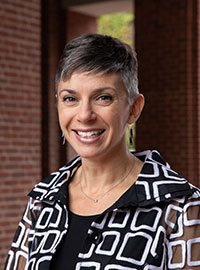
Amy Finstein earned a B.A. in American studies from Brandeis University and an M.A. and Ph.D. in architectural history from the University of Virginia. Prior to Holy Cross, she taught at the Massachusetts College of Art and Design. She taught as both a visiting lecturer and visiting assistant professor in the Holy Cross visual arts department from 2017-2019.
What excites you most about joining the faculty at Holy Cross?
I am energized by Holy Cross' dynamism as a small liberal arts college, and the opportunities that this framework presents for students and faculty alike. The liberal arts ideal of interdisciplinary exploration is key to my work as an architectural historian, and I am excited about the connections students will make between their studies in my classes, those in other disciplines and their larger understanding of the world as a whole.
How do your research interests influence the courses you teach?
As a scholar of modern architecture and urbanism, I am interested in how buildings and landscapes reflect moments of technological and societal change. One area of my research focuses on the impact of the automobile on American architecture and urban infrastructure. Another area of my scholarship centers on mid-century homes, and traces the ways that modern architecture became accessible to the mainstream public. This connects to my seminar "The Modern Home," and extends to broader conversations about settlement, consumerism, and sustainability. I find these topics intellectually interesting and critically relevant to our students who need to grapple with the physical and societal legacies of these development patterns.
Sarah Klotz, English
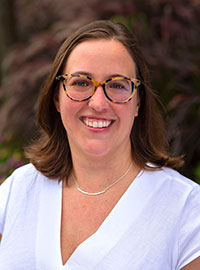
Sarah Klotz earned a dual B.A. in English and women's studies from The College of William and Mary and an M.A. and Ph.D. in English from the University of California, Davis. Prior to Holy Cross, she taught at the University of California, Davis, Butte College, the University of Southern California and Michigan State University.
What excites you most about joining the faculty at Holy Cross?
I am most excited about working at a small liberal arts college. As an undergraduate, I attended a liberal arts school and the small classes and faculty mentoring taught me how to think, how to communicate and how to write. I am thrilled to participate in that learning process with my students here on The Hill.
How do your research interests influence the courses you teach?
My scholarly interests focus on how marginalized groups engage language, writing and rhetoric to sustain their communities in times of extraordinary violence and oppression. When I teach, I focus on empowering students to make careful choices with language so that they can build a more just and equitable society. For me, writing and public speaking are all about imagining, communicating and ultimately creating change in our world.
Liat Spiro, history
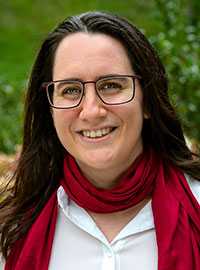
Liat Spiro earned a dual A.B. in history and international studies from the University of Chicago and a Ph.D. in history from Harvard University. Prior to Holy Cross, she taught at Harvard University and the University of Massachusetts, Boston.
What excites you most about joining the faculty at Holy Cross?
I'm most excited about joining a community committed to interdisciplinary teaching and research, which aims with forthright attention, human care, and critical thinking to repair a broken world. Locally, I've been inspired by the work that Stephanie Yuhl, professor of history, is doing through her community partnership project to document Worcester's LGBTQ+ history. I look forward to exploring Worcester's industrial history and seeing how I can incorporate the material remnants of the city's economic eras over the landscape into student research opportunities.
How do your research interests influence the courses you teach?
As a social and economic historian of the long nineteenth century, I teach courses on the history of capitalism in the United States and the world; the age of Jackson; work, culture and power in United States history; and the global history of technology. In my research, I use new types of evidence in visual and material culture and unexpected connections to reinterpret histories of capitalism and technology in the United States in transatlantic and global perspectives. This is exactly what I try to do in lectures and seminar discussions, as well. I hope to awaken an enduring interest in students to seek out and reckon with the entire array of political, economic, social, cultural and ethical questions within the technologies they will soon design, direct, be at the mercy of and wittingly or unwittingly put to everyday use.
Elizabeth Spragins, Spanish
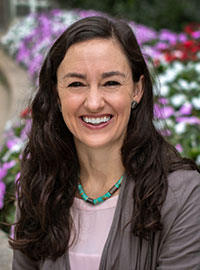
Elizabeth Spragins earned a B.A. in Spanish from Williams College, an M.A. in Spanish from Middlebury College, an M.A. in Hispanic studies from the University of Pennsylvania and a Ph.D. in Iberian and Latin American cultures from Stanford University. Prior to Holy Cross, she taught at the University of California, Berkeley and Washington & Lee University.
What excites you most about joining the faculty at Holy Cross?
As an alumna of a liberal arts college, I believe that being at a small college is a unique opportunity to develop deeply as an intellectual and as an ethical human being, as well as to foster long-term and meaningful connections with one's peers and mentors. I believe this environment also requires its professors to occupy a sweet spot in producing innovative research while at the same time advocating for their fields to a broader, nonspecialist public, most immediately represented by their undergraduate students.
How do your research interests influence the courses you teach?
As a scholar of the early modern Mediterranean, I am fascinated by the cultural conversations that shaped the relationships among members of different religious groups, and particularly focus on questions surrounding identity and difference. Early modern Spanish ideologies surrounding honor, blood purity, and religious orthodoxy are relevant to students today because they are, in fact, precisely the grounds that many scholars identify as precursors to the racist systems with which our society continues to grapple today. Thinking about identity, body, power and their relationship to text all inform the classes I teach on Spanish language and literature.
Headshot photos by John Buckingham

